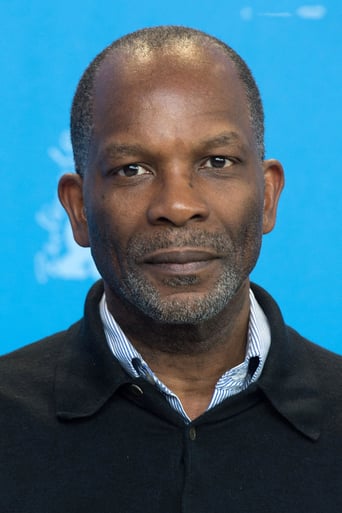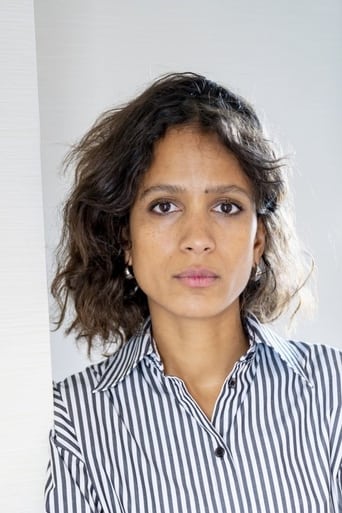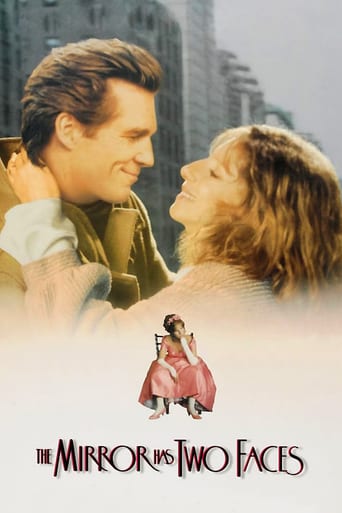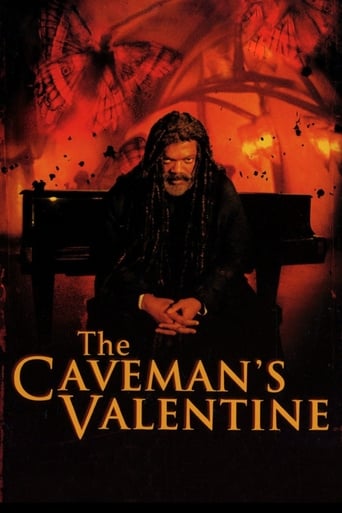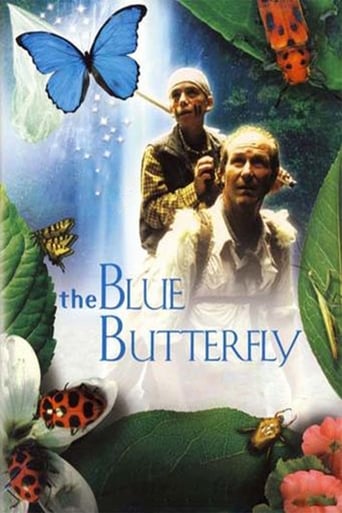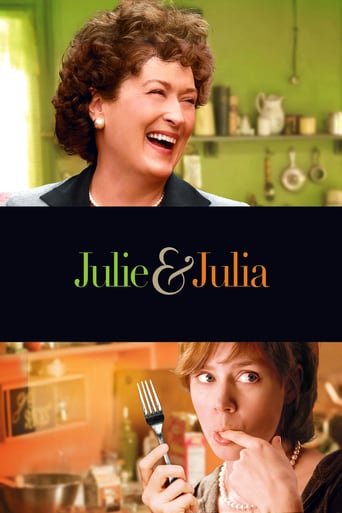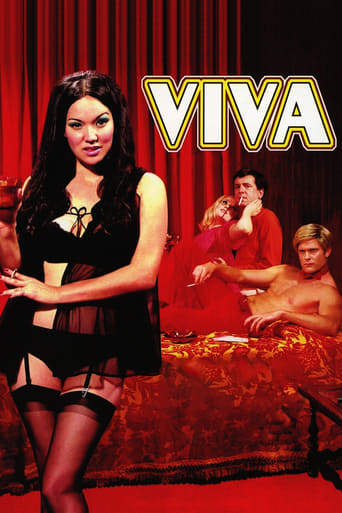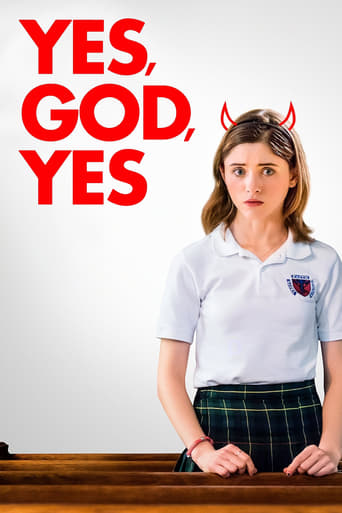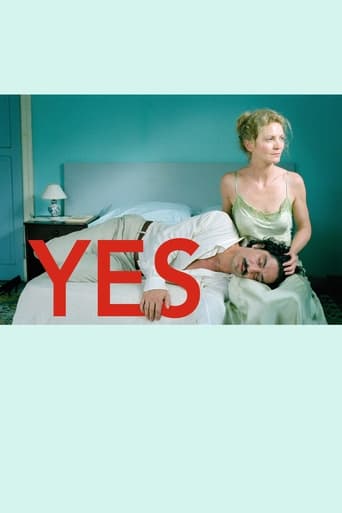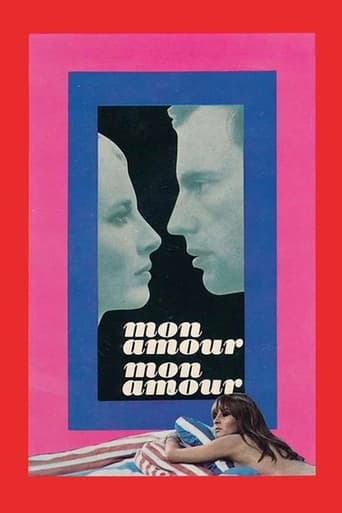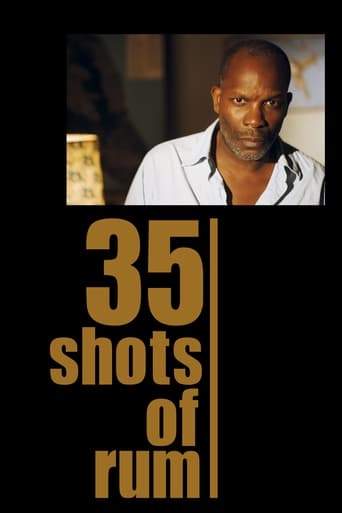
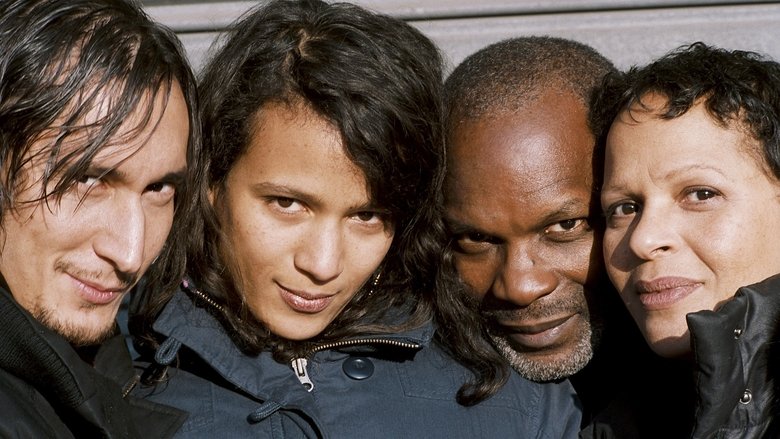
35 Shots of Rum (2009)
A widower and her daughter witness the retirement of a colleague of his and the closing of her department at her university.
Watch Trailer
Cast


Similar titles
Reviews
Very well executed
I like movies that are aware of what they are selling... without [any] greater aspirations than to make people laugh and that's it.
An old-fashioned movie made with new-fashioned finesse.
Exactly the movie you think it is, but not the movie you want it to be.
Lionel, a Parisian suburban train conductor, lives in a comfortable place with Josephine, his daughter, a university student of social studies. Their lives are examined in this introspective character study by Claire Denis, a director closely associated with the African continent. In this story, she watches a group of railway people, all of them African immigrants from the former French colonies.The focus of the film is the loving relationship between father and daughter and friends. Lionel was married to a German woman, now dead. He has reared Josephine, doing a splendid job. Even though they might not have a lot to say to one another, their love is evident. Noe, a neighbor, clearly likes Josephine. Lionel, who has been a widower for a long time, is interested in Gabrielle, a taxi driver. Nothing much happens in the story, and yet, it has its spell on viewers. One follows these immigrants who have made a life in a foreign land, living productive, if somewhat quiet lives. The atmosphere is positive as Ms. Denis decided to present them in a light which makes the audience care for them. The screenplay, written by Jan-Pol Fargeau and the director, shows their appreciation, and respect for the people being examined in the film.The cast is excellent led by Alex Descas, who plays Lionel with a quiet dignity. Lovely Mati Diop makes justice of her Josephine. Gregoire Colin plays the enigmatic Noe, and Nicole Dogue does an interesting take on Gabrielle. The production was photographed by the distinguished cinematographer Agnes Godard who bathes the film in dark tones since much of the action takes place at night. Tindersticks provide the melodious musical score.
A long, pretentious and boring mess, ending in a mushy inexplicable scene set up only to get the title worked into the film. It goes nowhere... mostly because it hardly has a plot, it is just enigmatic observations.Denis's strives for realism and humanism; but the only rare viewer can possibly identify with the film due to its purposely vague non-plot. Or to its characters who are just living their mundane lives. This film uses a manipulative narrative structure and its characters are mostly connected by lifeless staring or slight movements. The character development is nothing more than an hour and a half of watching them perform the most trivial and mundane of tasks. Nothing much happens. And the scenes in which nothing much happens drag on endlessly. This slice of life film was far less enjoyable than a slice of soggy pizza.
It is a commendation of this film that I simply didn't know what the broad story was after an hour - and still didn't by the end to which I had felt, nonetheless, compelled to watch. Claire Denis' film is called 35 Shots of Rum in reference to a ritual drink binge. The actual occasion for the 35 shots is never made explicit, and so it is with the causal scaffold of the story. As in Pinter, we are invited to experience the relationship-in-itself between characters, devoid of a context which might qualify it. My feeling was that, unlike Pinter, this was actually to get us to extrapolate our own idea of what their relationships consist in.There are hints which one can use as a prop but essentially we are left with a strange - and fantastically controlled (rather like Michael Haneke's contemporaneous The White Ribbon) coil of narrative that juxtaposes happiness with tumescent tension. The lack of narrative can be frustrating but it is actually a more eloquent representative of the naturally complex and sometimes contradictory humanity that constitutes these characters (who are all conspicuously handsome, by the way!). Fine film-making at the very limit of convention. 6/10
"35 Rhums" (2008) Dir.: Claire Denis'35 Rhums' is a slow, elliptical and deliberate film revolving around the four tenants of a house in what appears to be the greater Paris area. At its core are a father (Lionel) and his late-teenage daughter (Josephine), with the middle-aged taxi driver Gabrielle and the impulsive young Noe, living downstairs with his cat, rounding off a kind of extended family. They seem closer than your usual co-tenants and there's a suggested intimacy behind their functional and un-dramatic interactions, though this is all left unexplained for quite some time; indeed, so much so that it's tempting for the viewer to wonder if they've missed some crucial dialogue or failed to infer something that Claire Denis has intended them to. But this is a film that rewards not only patience but also a keen eye for behavioural detail. The realism of '35 Rhums' lies in its understatement of the relationships, shared histories, and occurrences (large and small) that make up the story. This is, I think, one of the finer points of the film, though it only became apparent upon further reflection.Lionel is a train driver and his daughter is a student. The absence of a mother in the apartment is immediately clear but, like many other aspects of the film, the specifics are not elaborated on as part of the setup. Neither is the wistfulness of Gabrielle as she chain-smokes and awaits Lionel's return home from nights at work, where his co-worker Rene is depressed about his upcoming retirement. (We see that the colleagues are as close-knit as the tenants.) Noe is restless and muses on his tendency not to settle anywhere too long. In an amusing scene, he discovers his aged cat has died in her sleep and offhandedly decides to take a job in Angola because there's nothing to stick around for any longer. This upsets Josephine, and she takes off to Germany with her father for a few days.All this occurs within a fairly short time frame, and in between we are shown glimpses of the unexplained histories that made the first half of the film a little vague. In fact, there is a particular scene where I felt that the movie really connected itself: Gabrielle's cab breaks down on the way to a concert, and the four co-tenants are sheltered from a rainstorm in an empty bar. Resigned to the evening's ruined plans, they eat and drink away, and over this long set piece all the hints and glances and suggestions of the preceding scenes are brought together and made into something tenable. From here, '35 Rhums' leads us successfully through moments of comedy, tragedy and finality. Crucially, it never changes its pace or its observational filming style after this point. To do so would cheapen the tone of the introductory hour, and be rather jarring at that. It reaches its end without any great resolution, which could be seen as a weakness by anyone still expecting a traditional climax by this stage. But if you're already this far into the film (and this review), that probably doesn't apply to you. We are left to assume that the characters' lives simply go on, though not unchanged by certain events and discoveries that I won't spoil for anyone here.The impression I came away with is that '35 Rhums' is an intimate film about the culmination of people, events of the past and present, and how these can close off little chapters of our lives and sometimes go unnoticed. It is not for everyone, and it is definitely not flawless - there's some dangling symbolism to do with rice cookers (yup, you read right), and I can't work out if Claire Denis is trying to make a social point with the virtually all-black casting. Aside from a short scene at the university where students are discussing the Third World debt, it seems to be entirely incidental (which, in turn, makes the dialogue in that scene appear incidental also). But my knowledge of urban French societal make-up is nil, so I can't comment further. It is essentially a decent and touching work, very well acted and captured, and if you have patience and aren't averse to a definite French style, then it could be your kind of movie.


